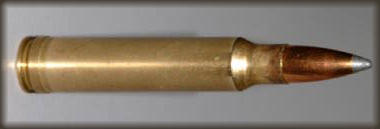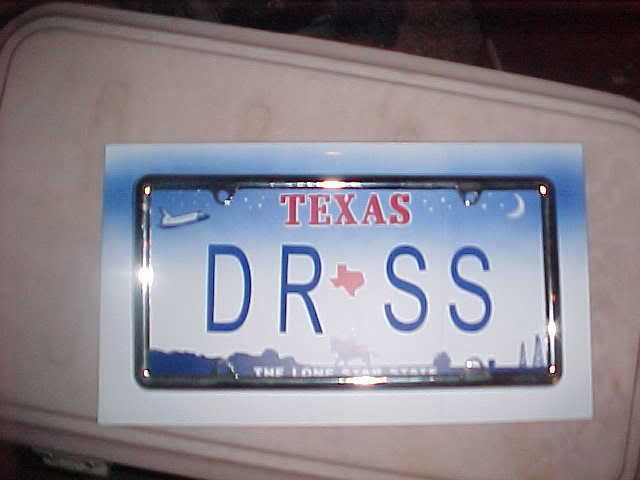

 The Accurate Reloading Forums
The Accurate Reloading Forums  THE ACCURATE RELOADING.COM FORUMS
THE ACCURATE RELOADING.COM FORUMS  Rifles
Rifles  Medium Bore Rifles
Medium Bore Rifles  British vs European names
British vs European namesGo  | New  | Find  | Notify  | Tools  | Reply  |  |
| one of us |
The 256 Mannilicher=6.5 Mannilicher, 275Rigby=7x57, 10.75=404 Rimless NE=404 Jeffrey, were three popular/good cartridges with dual names. The 30H&H, 375H&H, 318WR and the 9.3x62, seem to have avoided this. We're they not popular across the Channel respectively, or did they have dual names. Anyone have any ideas? The only thing I can think is that the first three were propriety and patented? Thanks captdavid "It's not how hard you hit 'em, it's where you hit 'em." The 30-06 will, with the right bullet, successfully take any game animal in North America up to 300yds. Get closer! | ||
|
One of Us |
300h&h = 30 super go big or go home ........ DSC-- Life Member NRA--Life member DRSS--9.3x74 r Chapuis | |||
|
| One of Us |
The 6,5 is original (austrian) called 6,5x54 Mannlich-Schönauer, the 7x57 is of german (mauser) origin and the .404 is of british origin, while german rifles with this caliber often are labeled with 10,75x73 | |||
|
| One of Us |
.318 Rimless Nitro Express 9mm Nimrod Dave In 100 years who of us will care? An armed society is a polite society! Just because they say you are paranoid doesn't mean they are not out to get you. | |||
|
| one of us |
Was the 30 Super a rimmed 300 H&H..I ask because years ago I had one in a double rifle, and Im thinking it was rimmed, maybe not this 82 year old gray matter works in funny ways these days.. Ray Atkinson Atkinson Hunting Adventures 10 Ward Lane, Filer, Idaho, 83328 208-731-4120 rayatkinsonhunting@gmail.com | |||
|
| One of Us |
Ray, according to the only reference to the .30 Super I can find, it was just Winchester's name for the .300 H&H with belted case. IIRC though the headstamp still had H&H Magnum spelled out on it. The Super was at the top of the circle and referenced their line of Super-X cartridges. Good pictures here. http://www.municion.org/300Hh/300Hh.htm Dave In 100 years who of us will care? An armed society is a polite society! Just because they say you are paranoid doesn't mean they are not out to get you. | |||
|
| One of Us |
Well in the case of the .256 and the .275 the Brits used the land diameter rather than the groove diameter the rest of the world used. Roger ___________________________ I'm a trophy hunter - until something better comes along. *we band of 45-70ers* | |||
|
| One of Us |
Hollands first advertisements and catalogs in the 1920's called it Holland's New "Super-Thirty" | |||
|
| One of Us |
In Sweden commercial or popular name are 375H&H ,in the gun certificate its 9,5*72br. | |||
|
| one of us |
The imperial naming of cartridges is very imprecise and misleading for a number of reasons. The main reason being that they simply referred to cartridges by bore and then further confuse by adding own brand names so that two companies would have the very same cartridge but carry the same bore but different brand name. They would then also add lengths such as 2 inch 3 inch or 3 1'4 inch etc or numbers such as their number two versions etc Further this they did the same to metrics by converting them to imperial bore size without defining what metric is was. The list of for instance 6.5mm metrics is extensive and in this lies the problem. If you say 6.5 here everybody assumes the 6.5x45 MS but that is a error because there was a slew of 6.5's for MS rifles adopted by english gunmakers bearing English gunmakers stamps that were not the 6.5x54 but the "other" MS calibers. Here one has to specify is it for the Greek rifle or the Dutch rifle or Hungarian rifle. Some makers like C&H for instance sold guns in 250 bore , 280 bore 370 bore etc or then sold a 375 bore witch was in fact a 9.5 MS, very different from the 375 H&H. | |||
|
| One of Us |
Then add to it that even the British gunmakers didn't adhere to the norm. 318Wr - .330" bullet 360s mostly had a .366" bullet but Purdey was .368" iirc. Then, 369 Purdey - .375" bullet Then, the 375 H&H has a .375" bullet 404 Jeffery - .423" bullet (404 denotes 40cal 4 shot rifle) 500 Jeffery - .510" bullet but the 505 Gibbs has a .505" bullet And the 416 Rigby has a .416" bullet. Why Rigby or Jeffery didn't just go with the bullet of the 450/400 is a mystery to me but my guess is there was some marketing spin at work there. Confusing, yeah? | |||
|
| one of us |
Huvius: Not marketing spin, ballistics modelling ! Unlike modern wildcatters who take a existing case and see how many times they can alter it without even giving thought to the physics behind pressure and performance the old timers actually did the math on each creation. For the most the originals were not accidental creations! On researching the old cartridges we see that they actually applied ballistics science to their choices to come up with cartridges and caliber and bullet weight combinations and most of the originals were actually engineered and were collaborations by the gun makers and propellant engineers. | |||
|
| One of Us |
For the record, nobody has adhered to a "norm" when naming cartridges, not even individual companies. Cartridges were named for bore diameter; for an approximate average of bore and groove diameters; for groove (bullet) diameter; or for marketing reasons (which may also have applied to the choice of one of the preceding categories). In the above order, Winchester and Weatherby provide American examples: .270 Win. and .270 Wby.Mag.; .220 Swift. and .240 Wby.Mag.; .358 Win. and .224 Wby.; .225 Win. and .460 Wby.Mag. British examples are: .275 H&H Magnum; .240 H&H Apex; .375 H&H Magnum; .404 Jeffery. The Europeans appear to have avoided caliber designations for marketing reasons, but they are represented in the other 3 categories, examples being: 6.5mm and 7mm cartridges; .280 Halger (a .280 Ross case loaded with a 7mm bullet) and 9x57 Mauser (my Oberndorf Type C mikes 8.9mm bore and 9.1mm groove diameters); most medium and large medium bore cartridges from 9.3mm to 11.2mm. Cheers, Al | |||
|
| One of Us |
Ray, I believe there was a "flanged" version of the 300 H & H also, like the 375 H&H Flanged. Could be wrong, will try and find some definite info. | |||
|
| One of Us |
Ray, Here you go...glad to find that I was not just blowing hot air... http://www.kynochammunition.co.uk/300%20flanged.html The .300 H&H Flanged, also known as the Super 30 Magnum, was designed for use in double rifles. | |||
|
| One of Us |
There, everyone got that? Clear as mud? Jesus said, "I am the way, the truth and the life. No one comes to the Father but through me". John 14:6 | |||
|
| one of us |
The 300 H&H and the 30 Super are dimensionally not the same cartridge ! H&H originally called it Hollands super 30 and not 300 H&H I suspect the difference arose when Winchester chambered for it in their pre 64 and olin ( Western) started making ammo for the Winchester. The original was the Super 30 and the dimensions were submitted for proofing and this dimension is still upheld by CIP as the 30 Super. CIP have the two cartridges as separate entities The later 300H&H has a different dimension and was loaded to a higher pressure spec than the original Super 30. A super 30 will chamber in a 300 H&H but not the other way around as the shoulder dimension is different albeit small. | |||
|
| One of Us |
I remember mentioning that .30 Super and .300 H&H Magnum were different cartridges a good while back when one of the AR members was insisting the .300 H&H he was having made up be marked as 30 Super. Blinded by a false sense of nostalgia, he didn't care and had it so marked anyway. . | |||
|
| one of us |
Additional notes on the 30 Super: The title "Super Thirty " was a H&H Brand name and went into use in 1925. Unlike a Trade Mark which was registered and was valid for 14 years ( renewable) brand names carried little to no legal protection. Western in the USA marketed the "Super thirty" as the 375 H&H in the same year. What is interesting though is that the first H&H rifle recorded in the H&H numbers ledger only appears in 1926 ? | |||
|
| One of Us |
The americans just have to make up names - the 6.5x55 is a good example. Named the 6.5x55 by its norwegian and swedish inventors the cartridge was promptly named "swedish" by the US ammo-companies. | |||
|
| One of Us |
For a good while we were seeing a lot of ex-military arms imported. So, to reduce confusion ammunition was advertised as 6.5 Swedish, 6.5 Italian Carcano, 6.5 Greek, 6.5 Japanese, 7.5 Swiss, 7.62 Russian, 8mm French Lebel, etc. The same cartridge was sometimes even referred to by different names depending on the availability of the particular import rifle. So, for example, we saw 7.65 Belgian, 7.65 Turkish, and 7.65 Argentine for 7.65x53mm. Ammunition was sold using those different labels and people still refer to the cartridges by all the various names. . | |||
|
| Powered by Social Strata |
| Please Wait. Your request is being processed... |
|
 The Accurate Reloading Forums
The Accurate Reloading Forums  THE ACCURATE RELOADING.COM FORUMS
THE ACCURATE RELOADING.COM FORUMS  Rifles
Rifles  Medium Bore Rifles
Medium Bore Rifles  British vs European names
British vs European names

Visit our on-line store for AR Memorabilia

